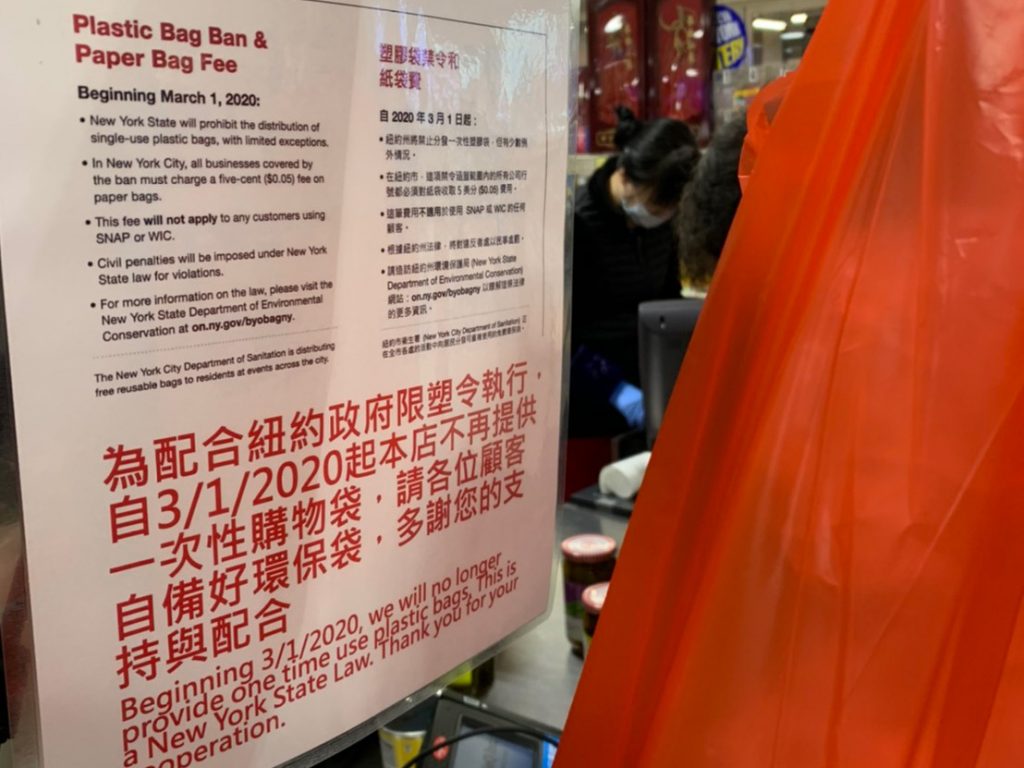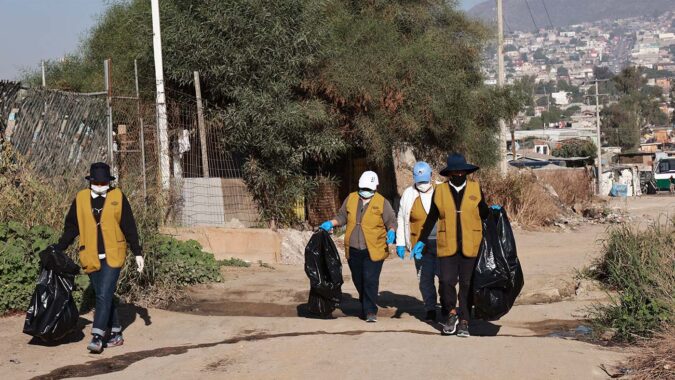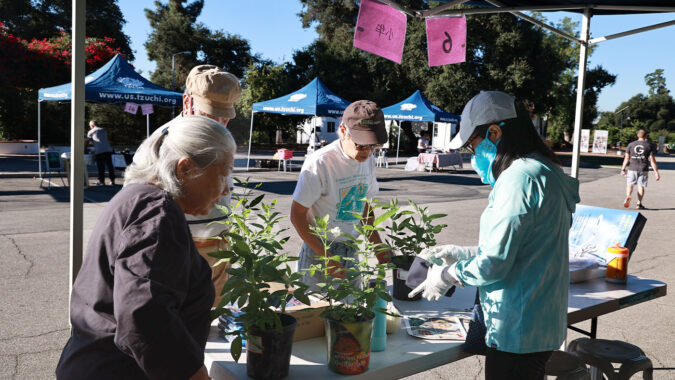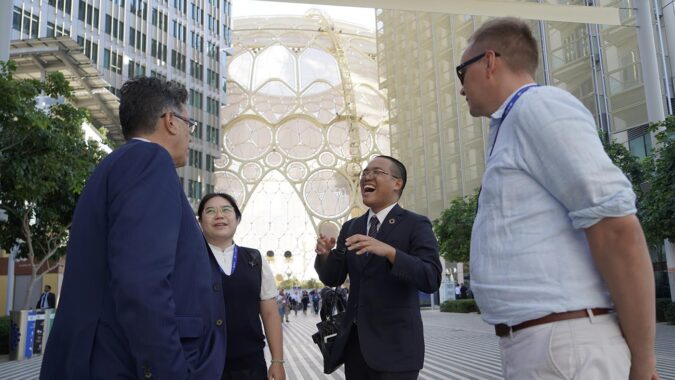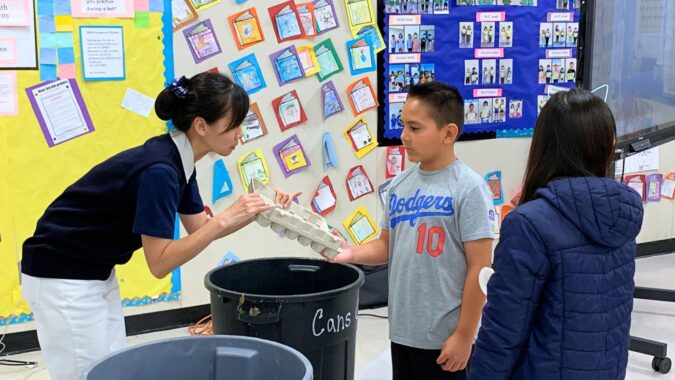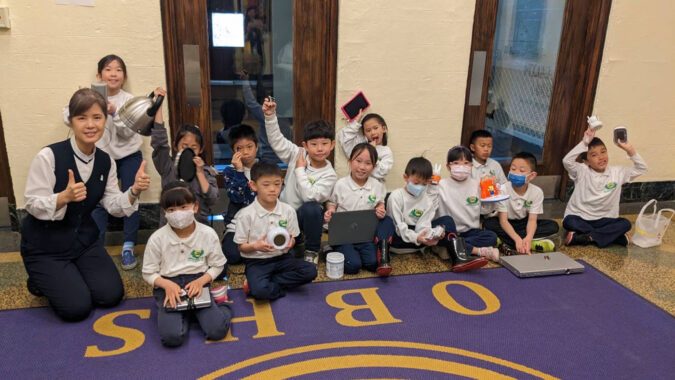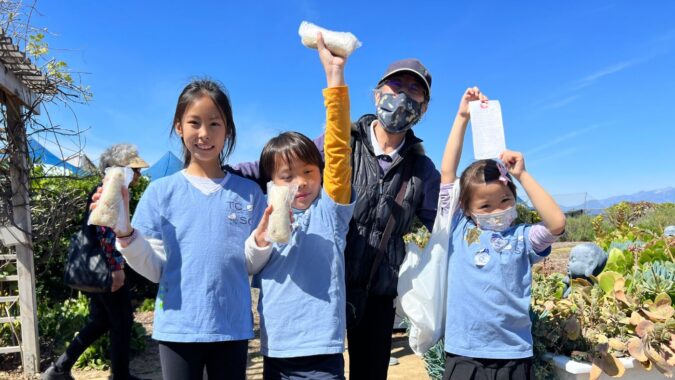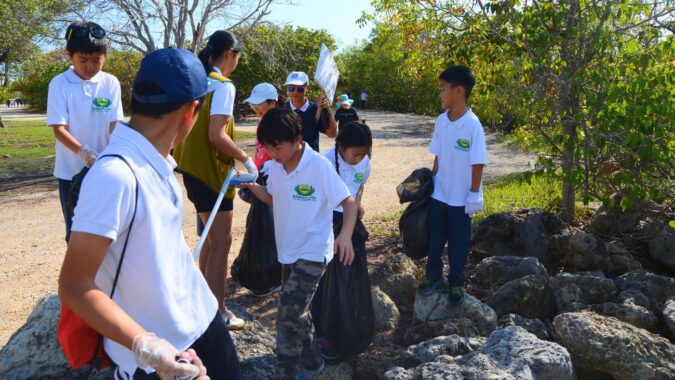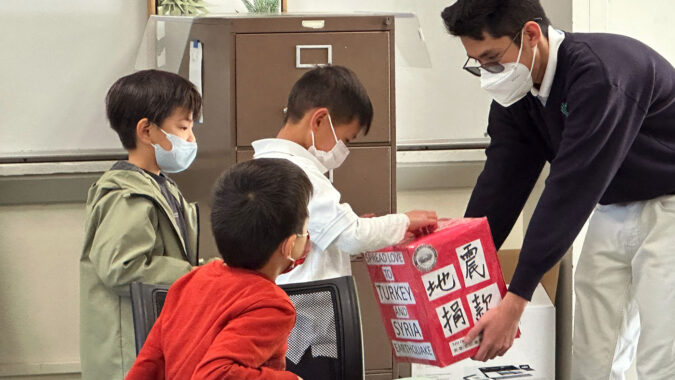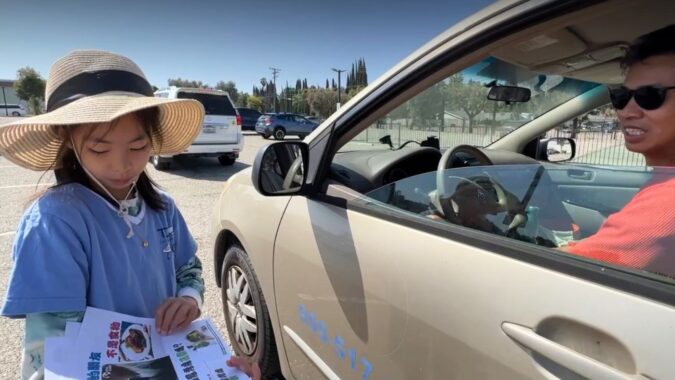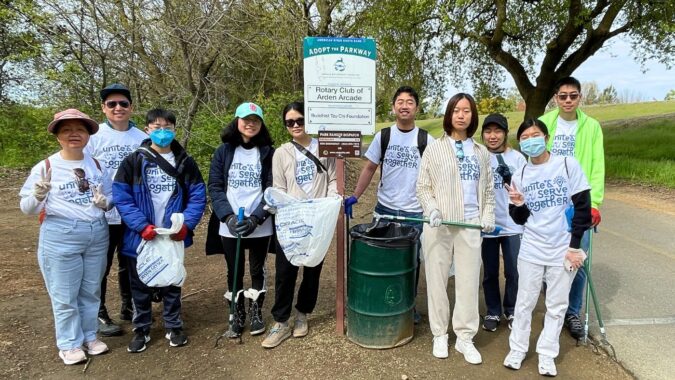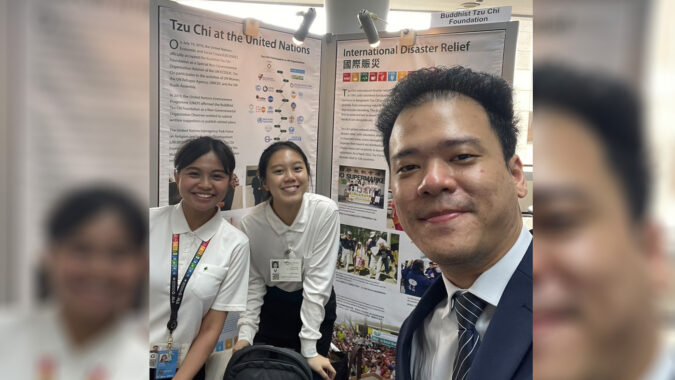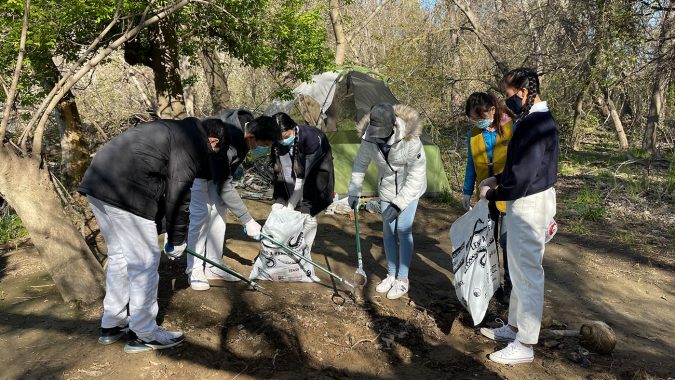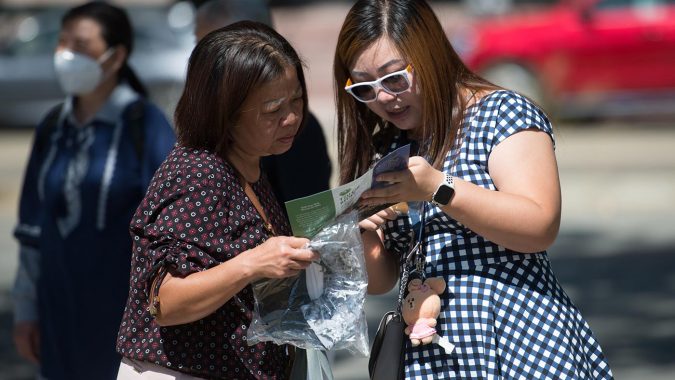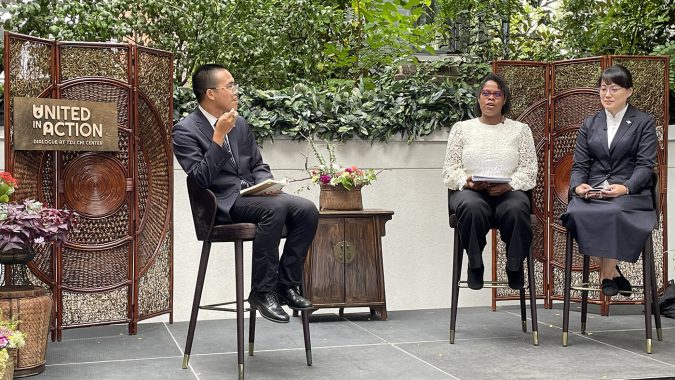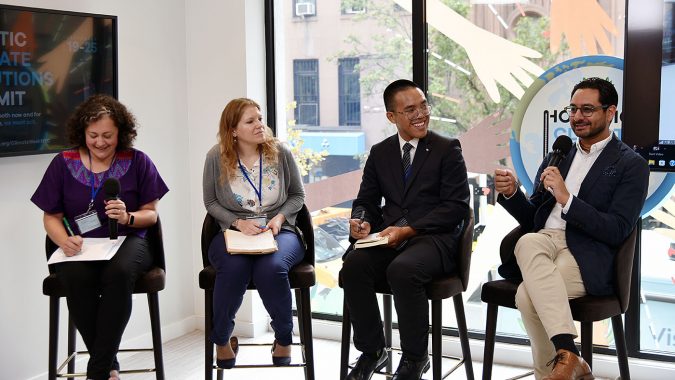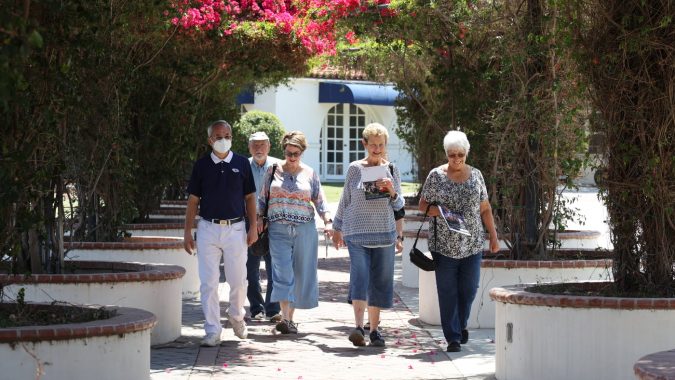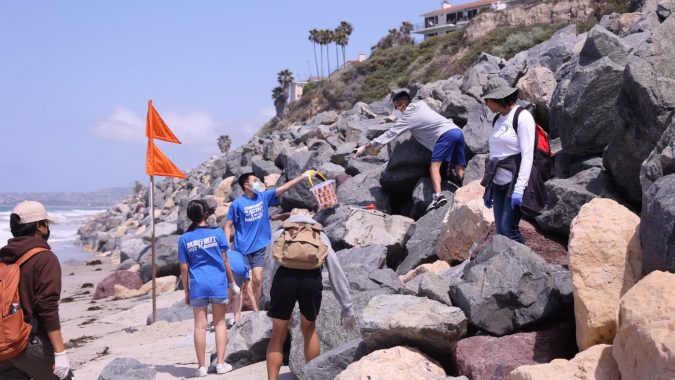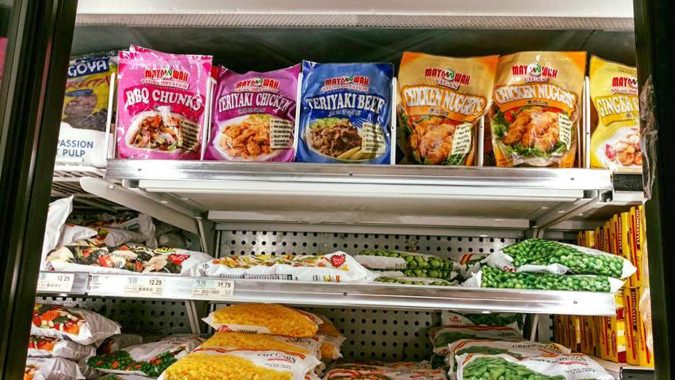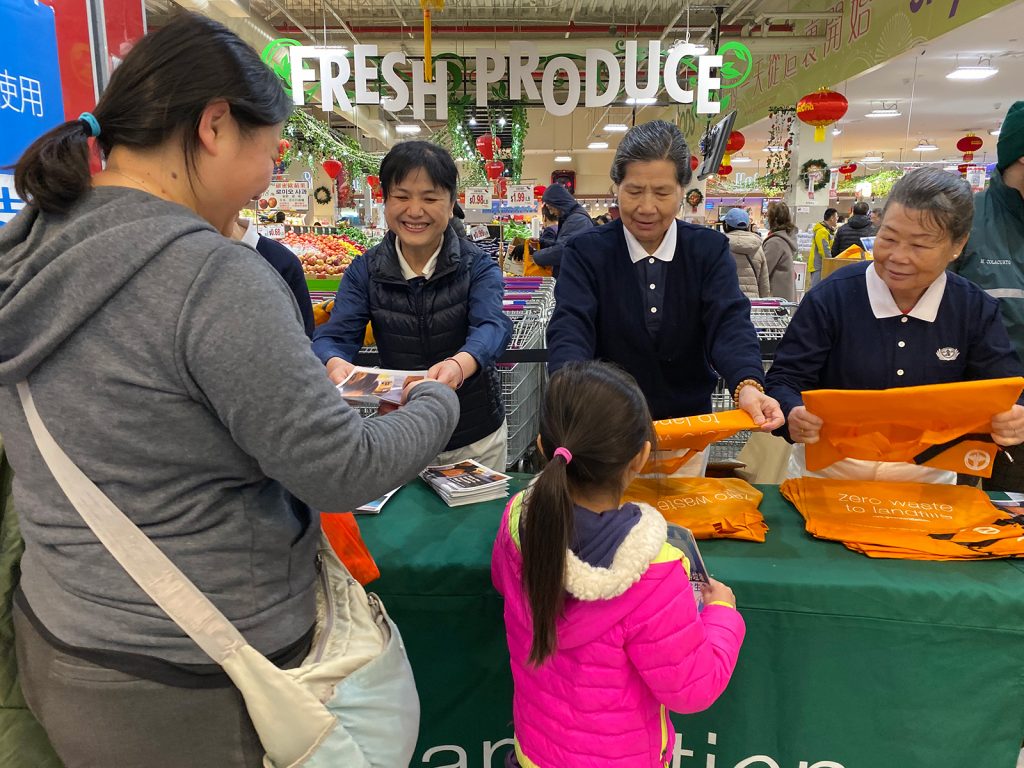
Written by Suman Chou & Daphne Liu
Translated by Diana Chang
Edited by Adriana DiBenedetto
New York State implemented a ban on single-use plastic bags on March 1, 2020. In an effort to help New Yorkers adapt to this change, volunteers from Tzu Chi New York gathered to distribute 1,000 free eco-friendly bags at the Chung Fat Supermarket in Flushing the day before the ban took effect. In addition to presenting a helpful reminder in advance, the distribution also allowed volunteers to bolster awareness for the impact humans have on Mother Earth — a matter essential to Tzu Chi’s humanitarian activities internationally.
Businesses across the state are affected by this ban. Posters describing the announcement that plastic bags will no longer be provided in supermarkets hang upon the walls, and employees at the register must also remind customers that single-use plastic bags are no longer being provided free of charge. Although most residents are aware of the law, getting into the habit is bound to take some time for many New Yorkers.
Mr. Zhang, a supermarket owner told us that each household tends to use 10 to 20 single-use plastic bags on average, which accumulates to about 50,000 plastic bags per month. Thus, the ban on single-use plastic bags can help lessen their burden on the environment.
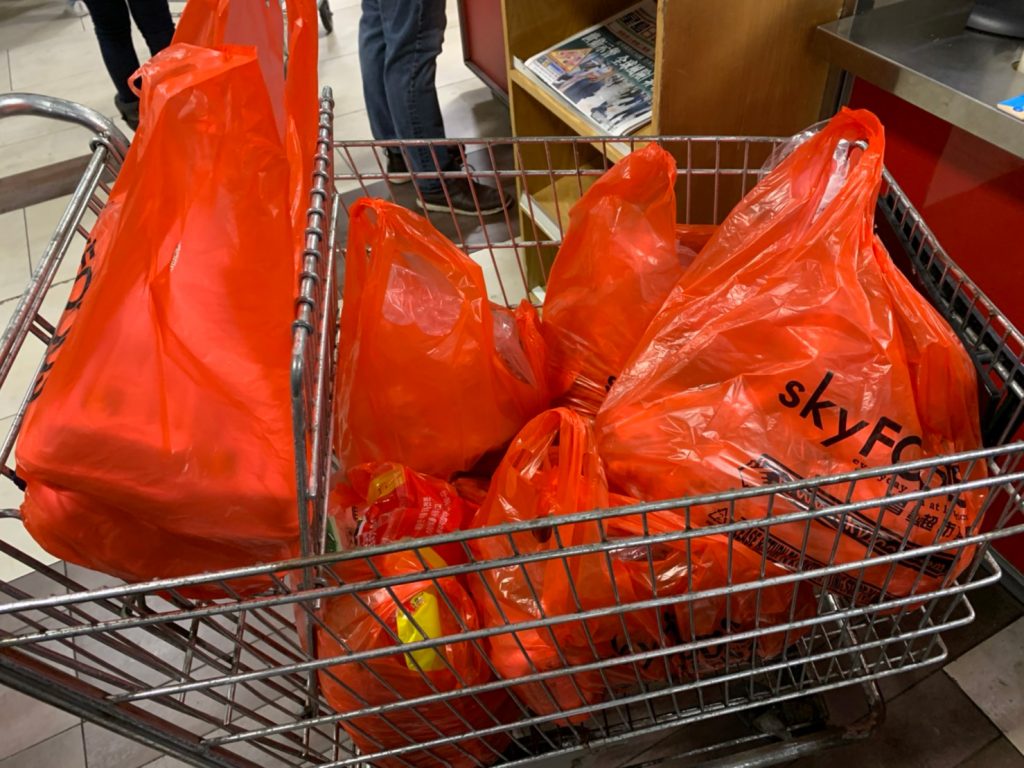
Reducing Billions of Plastic Bags
In April of 2019, the State of New York proposed a ban against the use of single-use plastic bags, opting to implement the law on most types of single-use plastic bags from retail sales as of March 1, 2020. At the core of this decision is the fact that New York State uses more than 23 billion plastic bags per year, and as one of the largest cities in the United States, New York City uses more than 10 billion. Lightweight and easily airborne, single-use plastic bags have essentially become a staple among the branches of trees, clogging drains, and unfortunately have a deadly impact on wildlife when critters become entangled by the filmy plastic or when they’re mistaken as food. As the bags are likewise difficult to recycle and are non-biodegradable, they commonly end up as a lasting cause of pollution in the environment, killing 100,000 marine animals per year.
New York City Councilman Peter Koo chiefly serves Flushing, where a substantial number of Chinese-Americans reside, and is a staunch supporter of the new law.
Asian countries have implemented environmental protection programs sooner than the United States. The Chinese communities in Flushing should have no difficulty in adapting it. Taiwan's recycling and environmental protection projects are done very well.
New York City Councilman Peter Koo
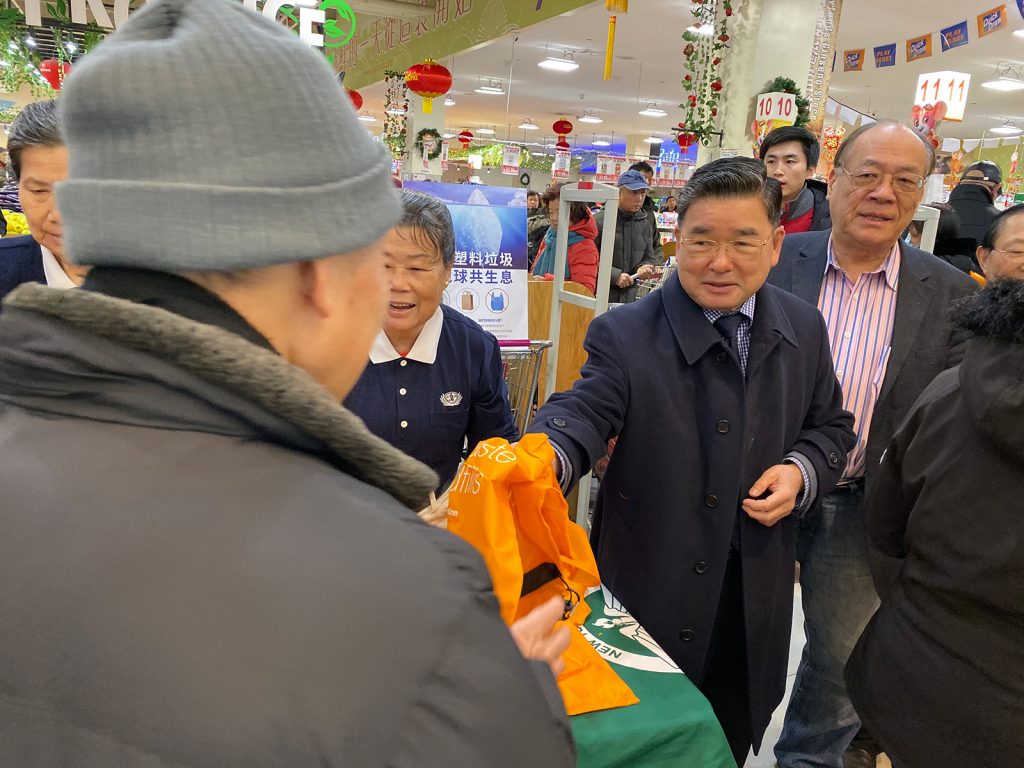
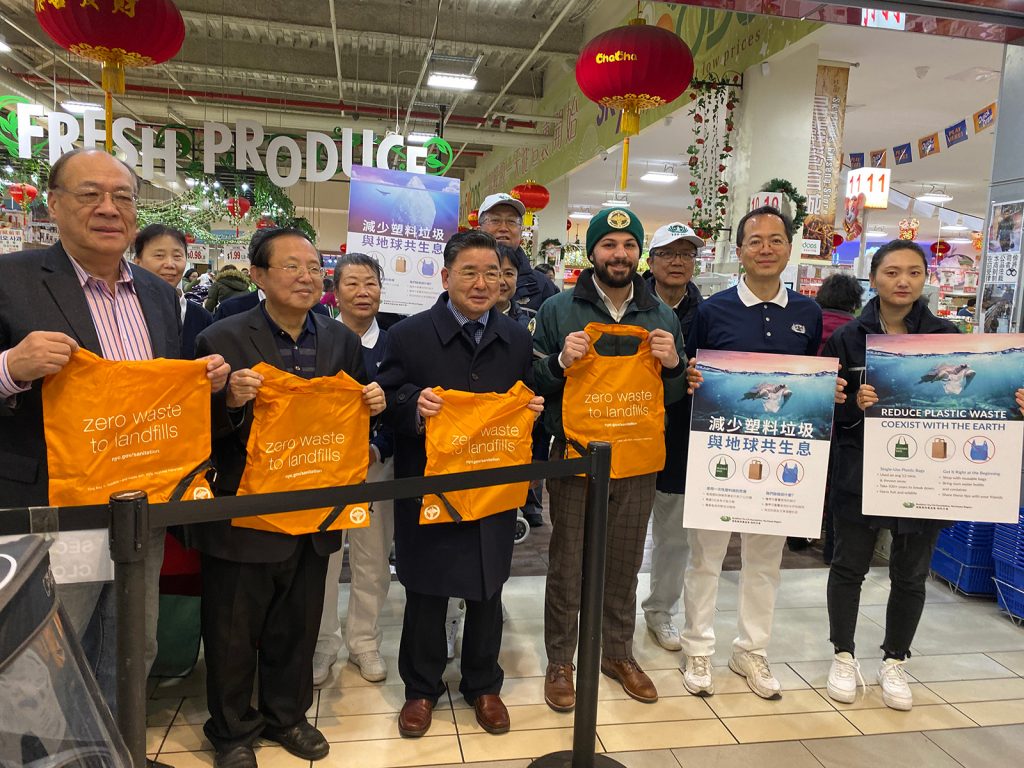
Tzu Chi Carries Out BYO BAG
Four years ago, New York City began planning a statewide ban of single-use plastic bags. At that time, Tzu Chi USA’s New York branch participated in planning out the implementation of the new law, and frequently went to supermarkets to communicate the details.
Tzu Chi has been promoting environmental protection for over 30 years, and we have done everything we could in our daily lifestyle. It’s good to maintain a vegetarian diet, recycle, and use eco-friendly shopping bags.
Freeman Su, Executive Director of Tzu Chi USA's Northeast Region
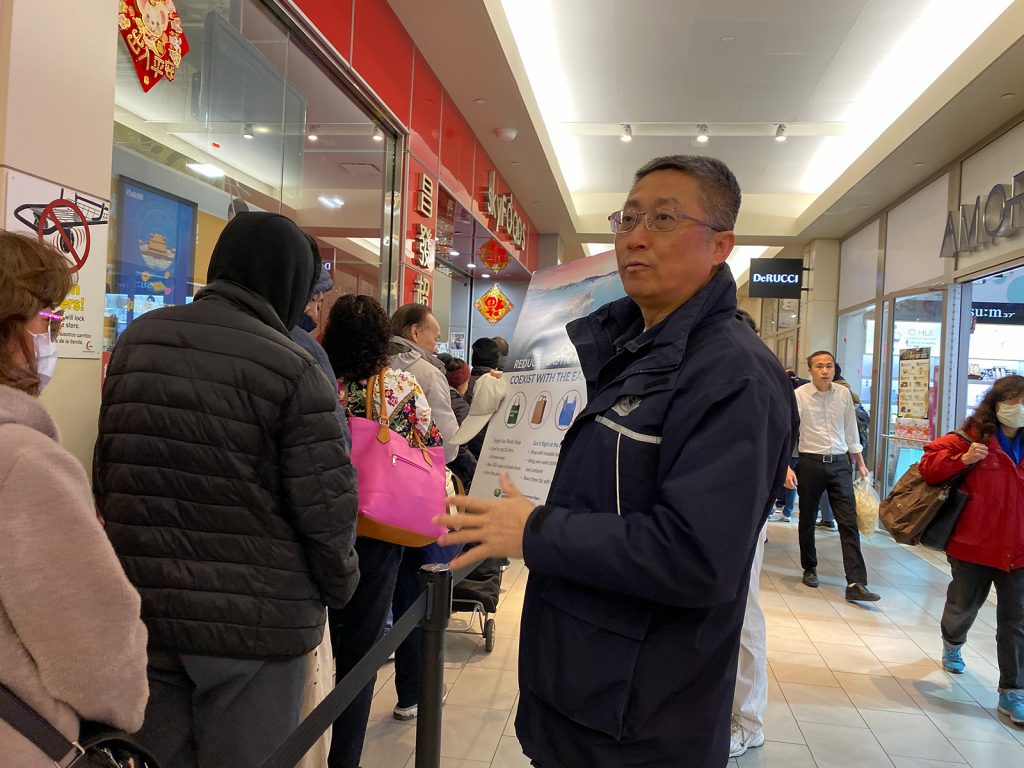
Another group participating in planning and implementing the plastic bag ban is the American Chinese Environmental Protection Association (ACEPA), which also collaborates with Tzu Chi New York for environmental protection activities. ACEPA is an environmental protection organization composed of Chinese scholars from several industries. Dr. Changhua Chang, the chairman of ACEPA, also expects that Chinese residents will adapt to this contribution in protecting the environment.
30 Days of Enforcement Buffer
The month of March has been designated as a buffer period for the implementation of the ban. Therefore, if consumers do not have shopping bags, they can still purchase paper bags or replacement bags that will cost a minimum of five cents each. Councilman Peter Koo delivered a reminder stating that after the official implementation date on April 1st, if businesses do not comply with the new law, every plastic bag may be fined $250.
